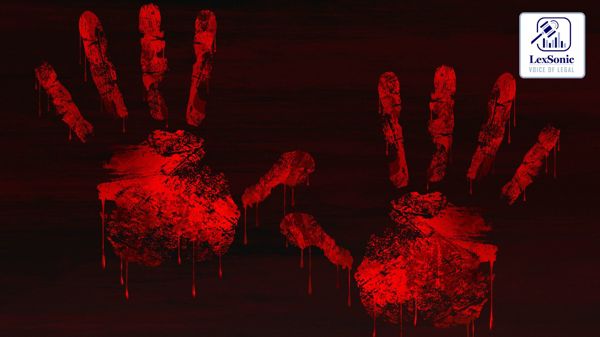Court Overturns 'Juvenile' Status, Orders Re-trial for Murder Accused.
01 August 2025
Criminal Appeals & Suspension of Sentence >> Criminal Law
In a significant ruling of Suresh v/s State of Uttar Pradesh & Another, the Supreme Court of India has overturned a previous High Court order that declared a murder accused, referred to as Respondent No. 2, a juvenile. The court's decision, which came after a detailed analysis of conflicting evidence, means the accused will now be tried as an adult for a murder committed in 2011. The ruling emphasizes the importance of scrutinizing evidence in cases where a claim of juvenility is made, especially in the context of serious crimes.
The Background of the Case:
The case stems from an incident on August 31, 2011, in Muzaffarnagar, Uttar Pradesh. According to the First Information Report (FIR) lodged by the appellant, the accused, along with his father, allegedly forcibly took the appellant's brother, Rajesh, into their house. It is alleged that the accused then shot and killed Rajesh with a country-made pistol. The FIR led to a Sessions Trial under Sections 452 and 302 of the Indian Penal Code (IPC).
During the trial, the accused claimed he was a juvenile at the time of the offense, stating his date of birth was April 18, 1995. This would have made him 16 years, 4 months, and 13 days old on the day of the incident, entitling him to be tried under the Juvenile Justice (Care and Protection of Children) Act, 2000. The Trial Court and subsequently the High Court accepted this claim, relying on a transfer certificate from the first school the accused attended.

Conflicting Evidence on Age:
The core of the appeal before the Supreme Court was the conflicting evidence presented regarding the accused's age. The appellant argued that the courts below had erred by relying solely on the school certificate, especially when other official documents and medical evidence suggested the accused was an adult.
The Supreme Court highlighted a discrepancy in the records:
School Certificate: A transfer certificate from the first school, Kaushik Modern Public School, Khurgaon, stated the accused's date of birth as April 18, 1995. However, the Headmaster of the school testified that this date was recorded based on the father's oral representation and not on any supporting documents.
Family Register: A family register maintained under the U.P. Panchayat Raj Act, 1947, a statutory public document, listed the accused's year of birth as 1991.
Medical Report: A medical board, constituted at the direction of the Trial Court, examined the accused on December 1, 2012, and estimated his age to be approximately 22 years. This would have placed his age between 20 and 21 at the time of the incident.
Voters' List: The Voters' List for the Kairana Legislative Assembly Constituency in 2012 recorded the accused's age as approximately 21 years as of January 1, 2012.
The Court's Rationale:
The Supreme Court's analysis centered on Rule 12 of the Juvenile Justice (Care and Protection of Children) Rules, 2007 and Section 35 of the Indian Evidence Act, 1872. Rule 12 outlines a specific sequence for determining age, prioritizing matriculation certificates, followed by a school birth certificate, a municipal or panchayat birth certificate, and finally, a medical opinion.
The court found that while a school certificate from the first attended school is typically given precedence, its reliability was called into question by the Headmaster's testimony. The fact that the birth date was recorded based on an oral statement, without any documentary proof, significantly weakened its evidentiary value.
In contrast, the court noted that the Family Register is a public record maintained by a public servant in the performance of their official duties, as defined under Section 35 of the Evidence Act. The court considered the Family Register, the Voters' List, and the Medical Report, all of which contradicted the school certificate, to be more reliable evidence.
The court also cited a previous ruling, Om Prakash v State of Rajasthan, which held that in cases of serious offenses, a casual approach to determining juvenility should be avoided. The precedent emphasized that medical evidence based on scientific investigation can be given precedence over school records that are found to be speculative or unreliable.
The Verdict:
Based on this comprehensive review, the Supreme Court concluded that the declaration of the accused as a juvenile was improper. The court's order sets aside the previous rulings of both the High Court and the Trial Court. The accused is now to be treated as an adult and tried for the murder charge.
The court has directed that the trial be expedited and concluded by the end of July 2026. The accused, who was previously released by the Juvenile Justice Board, has been ordered to appear before the Trial Court within three weeks. The court also stipulated that if the accused is convicted, he would be entitled to a set-off for the three years he has already spent in custody under the juvenile system. This ruling underscores the judiciary's commitment to ensuring that justice is served while also maintaining a careful and evidence-based approach to the sensitive issue of a defendant's age.
Section 302., Indian Penal Code - 1860
Section 452., Indian Penal Code - 1860
Section 35, Indian Evidence Act - 1872
